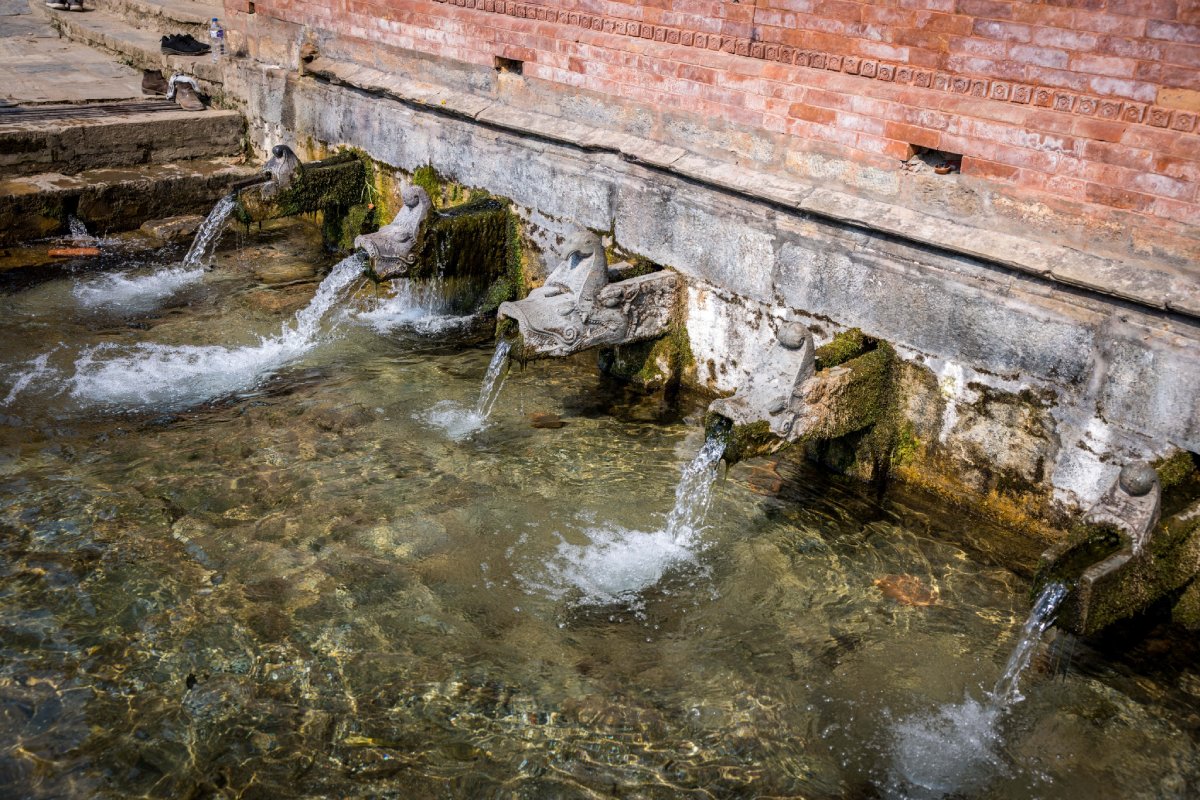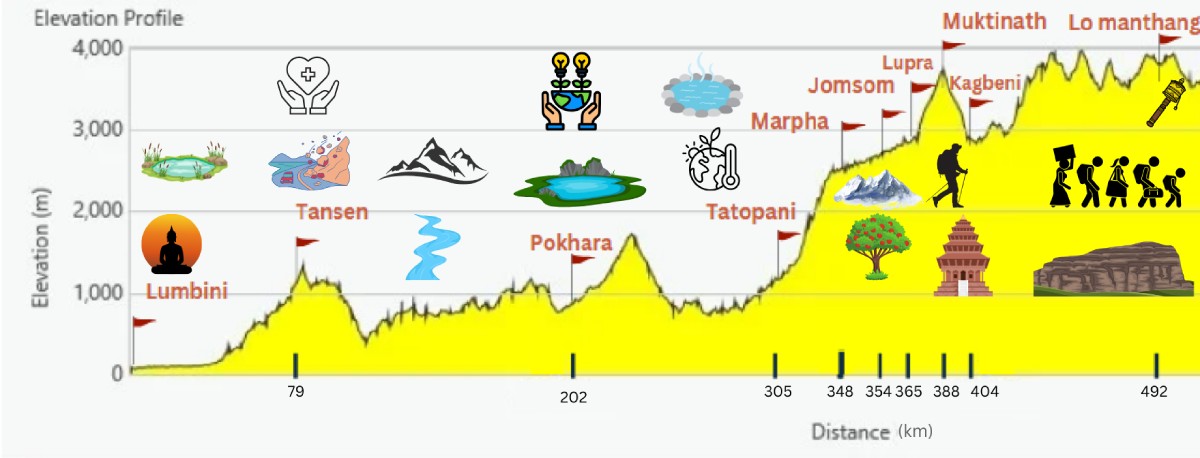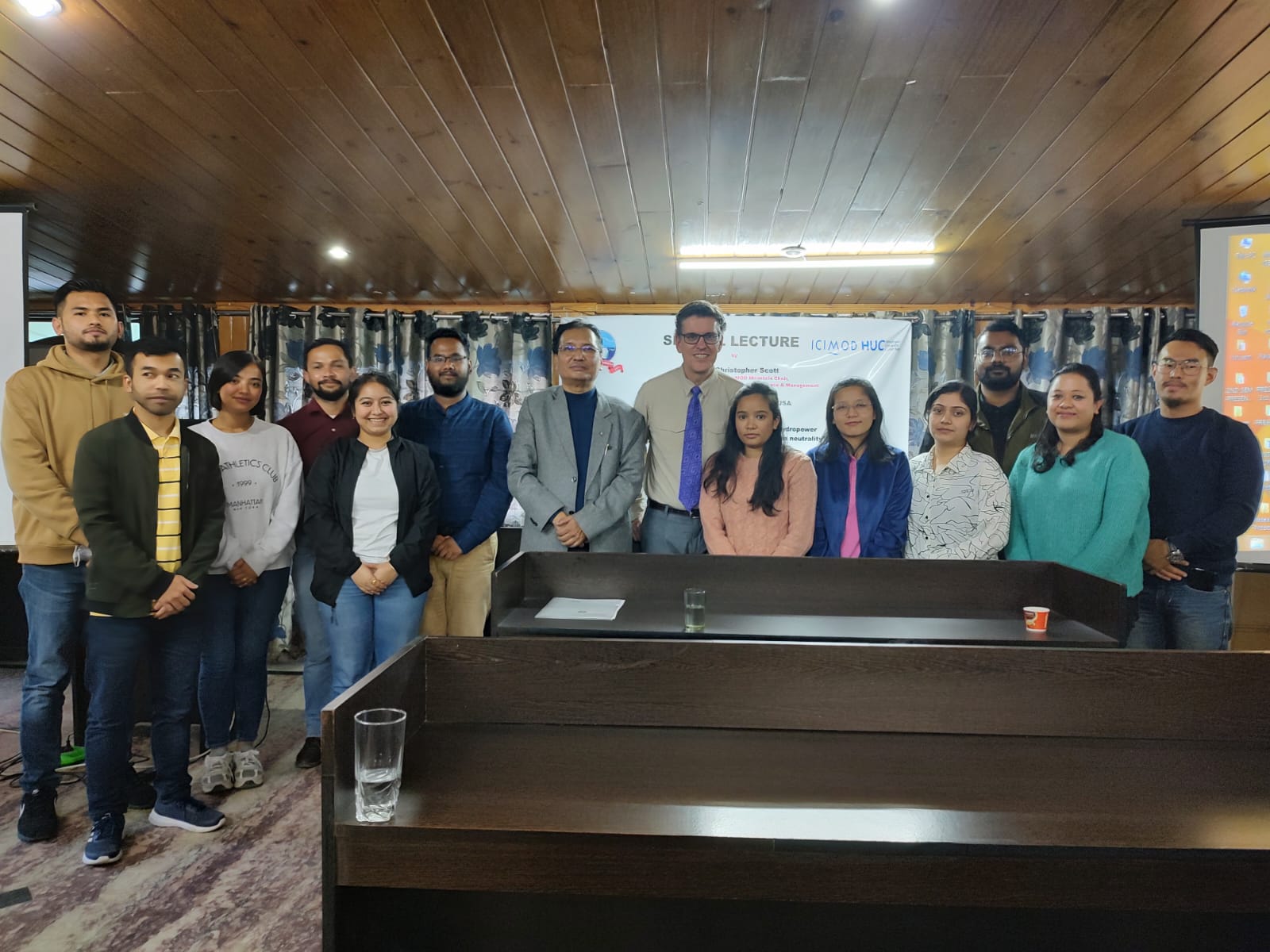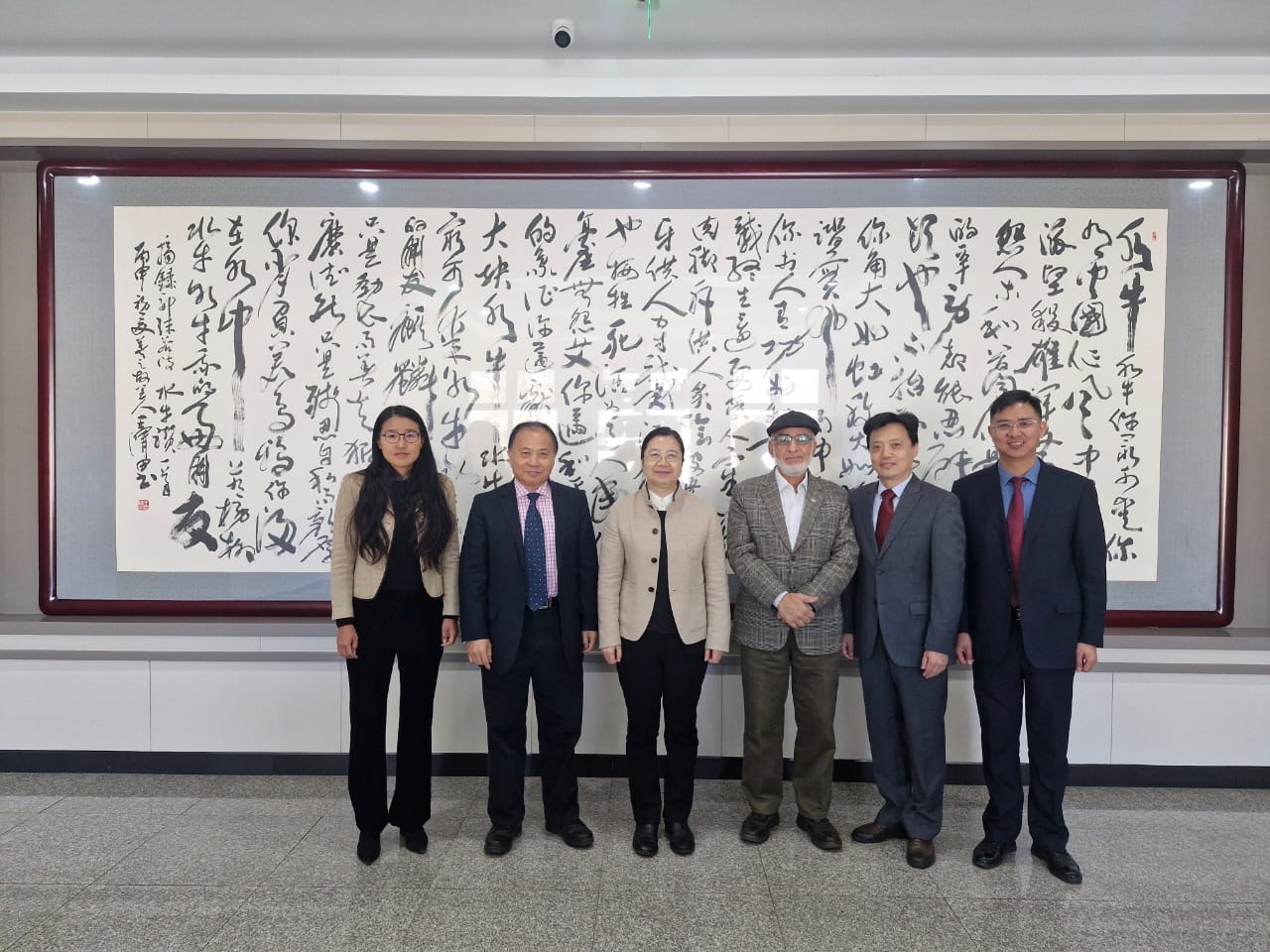Background
The International Centre for Integrated Mountain Development (ICIMOD) is a regional and intergovernmental knowledge and learning centre working on behalf of the people of the Hindu Kush Himalaya (HKH). We are based in Kathmandu, Nepal, established by and serving our eight Regional Member Countries – Afghanistan, Bangladesh, Bhutan, China, India, Myanmar, Nepal, and Pakistan. Our work focuses on helping these Regional Member Countries address regional and transboundary issues such as climate change, biodiversity loss, air pollution, water management, and promotion of nature-positive solutions for resilient livelihoods.
The Knowledge Park at Godavari (KPG) was set up in March 1993, following the generous provision of 30 hectares of land by the Government of Nepal. It is located in the Godavari-Phulchoki landscape, south-east of Kathmandu Valley. The park has been designed and structured to showcase and demonstrate simple and easily replicable solutions (technologies, innovations, and practices) that can improve the ecological and economic conditions of mountain communities and advance sustainable mountain development in the HKH. It serves as a place to test, select, and demonstrate these different technologies, farming techniques, and other practices for adoption and replication and/or upscaling by visitors and partners. It also serves as a place for training and as a repository of plant germplasm resources.
Project description
The goal of this project is to contribute to the production of scientific knowledge relevant to the KPG by facilitating field research in the park. MSc student researchers will implement mainly field-based research on the themes and technologies housed in the park. The researchers will be granted access to the KPG and its technologies and experimental plots. In order to facilitate research guidance and mentorship, they will be paired with an ICIMOD scientist. (One scientist may mentor multiple students if/when appropriate.) A stipend will be provided to cover the cost of food and travel for research in the KPG. The length of the resulting research paper is to be determined according to its topic but shall be between 2,500 and 5,000 words. The maximum possible timeframe of the research is six months (September–January 2022). The student researchers will present their paper at a final ICIMOD-based peer presentation event. Beyond that, the student researcher is encouraged to submit their resulting paper for presentation at an academic conference of their choosing. In their motivational letter, applicants are encouraged to identify conferences where they aim to present their paper. If a paper is accepted at the desired conference before March 2023, ICIMOD will bear the associated registration fees.
Research topics
In their research proposal, applicants are expected to propose research questions pertaining to the wider thematic areas of mountain development, biodiversity, sustainability, conservation, sustainable agriculture, and renewable energy technologies. Within these general themes, the following research areas are of particular interest to the KPG:
- Studies on hydroponics: Topics can include comparative analyses on economic viability or nutrient contents. The KPG exhibits a hydroponic system, available for such analyses. Access to the device will be granted upon specific request (including proposed timelines) within a research proposal.
- Studies on different fuel options for essential oil distillation units: Topics can include 1) comparative fuel consumption (hybrid solar-biomass vs biomass only); or 2) bio-briquettes as fuel source (economic viability analysis, employment generation potential, biodiversity conservation potential). The KPG exhibits a hybrid solar-biomass fired distillation unit available for such analyses. Access to these devices will be granted upon specific request (including proposed timelines) within a research proposal.
- Studies on 2nd generation park issues (issues arising from the increasing maturity of the KPG’s ecosystem, particularly its fauna), including wildlife damage to crops (possible focus: analysis of mitigation methods), as well as insect pest pressure on crops (possible focus: analysis of mitigation methods)
- Agronomic approaches: (Comparative) effectiveness of agronomic practices, such as selected organic, permaculture, agro-ecological, or integrated pest management approaches. Upon explicit request in their research proposal (including proposed timelines), the researchers can access research plots within the KPG to set up field trials/experiments.
- Studies on renewable/zero-energy technologies, particularly studies on zero-energy storage and pumping technologies
- Hydrological studies
- Flora and fauna studies: Analyses on selected aspects of the flora and fauna of the KPG
Methodology
The applicant is expected to outline in their research proposal an appropriate research methodology based on their selected topic. The proposed methodology must include a significant element of field research within the KPG.
Requirements
Applicants shall meet the following mandatory requirements:
- Currently enrolled in a master’s degree programme in biological sciences, environmental sciences, agronomy, botany, zoology, engineering, economics, or another relevant science in a university in Nepal
- Strong interest in the topics to be investigated under the project, preferably demonstrated by previous work on similar topics
- Strong command of both written and spoken English
- Excellent analytical, technical, and communication skills.
- Motivated, communicative, and proactive
- Independent work attitude and positive team spirit
Application procedure
During the first round, applicants are invited to apply via this form with the following documents:
- A motivation letter
- A CV
- Short research proposal (approx. 500 words) in line with the project’s objectives
During the second round, shortlisted candidates will be invited for a Skype interview. Women and members of socioeconomically disadvantaged communities are strongly encouraged to apply.
Timeline
The application deadline is 26 September 2022.
Remuneration and benefits
ICIMOD will provide successful applicants with an allowance for field research subsidies. For applicants not residing in the Kathmandu Valley, a separate flat-rate travel allowance for a two-way trip will be provided. If the paper resulting from the research is accepted for presentation at an academic conference before March 2023, ICIMOD will cover registration fees. (Travel costs will not be covered.)
Contact



